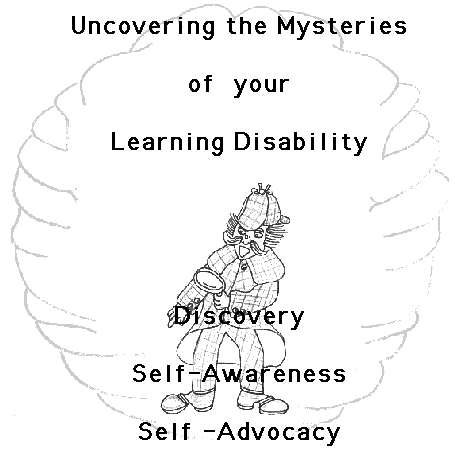LEARNING FOR ALL
My name is Jake Christ, welcome to my blog:Learning For All. I have a learning difference, this blog is to make people like me not feel so isolated.
How to Be Your Own Advocate
Introduction
Hello, all, in this segment of Learning for All, I will be discussing how to be your own self-advocate with a learning difference.
In each blog post, I will introduce the topic, explain what the topic is, then share my experience with the particular topic. My sources of information will be hyperlinks throughout the blog.
I will go through ways to advocate for yourself, especially when teachers/professors discredit your learning difference.
This topic is extremely important regardless of school because you have to find ways to communicate with others when things are not the way they should be.
Always have an open mind, and most importantly, be professional.
What is Self Advocacy?
Self-advocacy is the ability to speak up for yourself and the things that are important to you. This means you are able to ask for what you need and want and tell people about your thoughts and feelings.
The goal of self-advocacy is for YOU to decide what you want, then develop and carry out a plan to help you get it.
Self-advocacy does not mean you can’t get help if you need or want it, it just means that you are making the choices, and you have to be responsible for the choices you make.
When you have good self-advocacy skills, you can have more control and make the life decisions that are best for you.
Tips for self-advocacy
Be Self-Aware: in order to advocate for yourself, you need to know yourself, and what exactly is making you upset.
Have an understanding of the situation, and what exactly is the issue. You should be able to give a brief sentence stating, the problem.
For example; if a teacher not giving you accommodations. My teach Mr., Ms., or Mrs. insert name, is not giving me my, blank accommodation.
Speak to someone else that has been there to help you, or you trust. This can be your parent/guardian, school counselor, or another teacher. My mom was that person, she always heard me out and guide me on how I should advocate for myself.
Being assertive does not mean aggressively making demands.
Having self-confidence, and having a learning difference is nothing to be ashamed of, and neither is requesting accommodations that allow you to have equal access to your education.
Good self-advocates know how to ask questions and get help from other people.
The Flow of Self Advocacy
Know your strengths.
Be aware of your weaknesses;
Identify strategies to overcome those weaknesses.
Effectively communicate those needs to others.
My Personal Experience
I have had to learn how to self-advocate for myself at a very young age.
Self-advocacy was one of the very first lessons that my parents taught me.
I had ample time to practice self-advocacy I did in elementary school, middle school, high school, and even currently in college.
I have found that you should always consult your loved ones or people you trust before speaking to someone about an issue.
Furthermore, I have had to ask teachers for accommodations, class issues, and absences.
I found out that being a self-advocate is not just a skill I needed to learn for the world of education, but in life in general.
For example, if you buy something and the cashier does not give you the proper change, you should say “hey can you recheck the change?” that being a self-advocate.
I ask my parents if I could go to the bathroom on a long road trip, that is an example of being a self-advocate.
In the next blog for Learning For All, I will go over how to choose a college that is right for you!
Thank you for reading.


